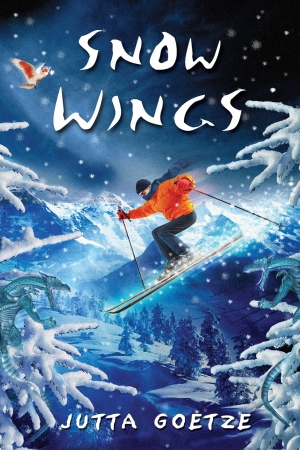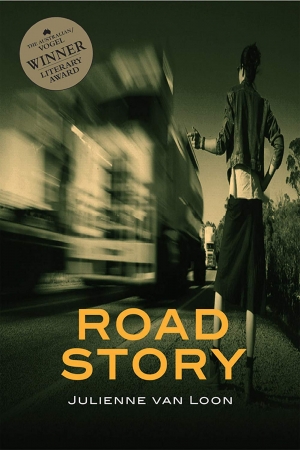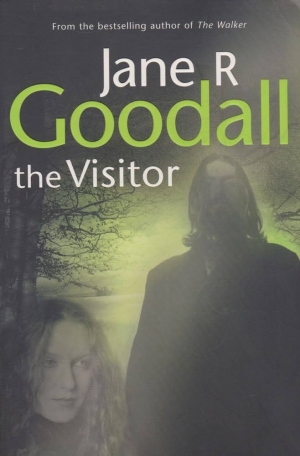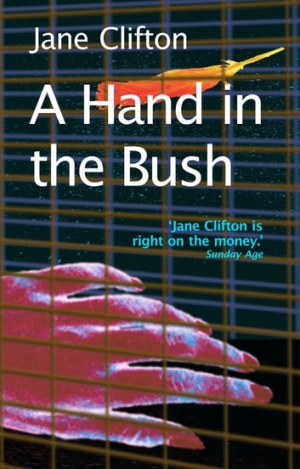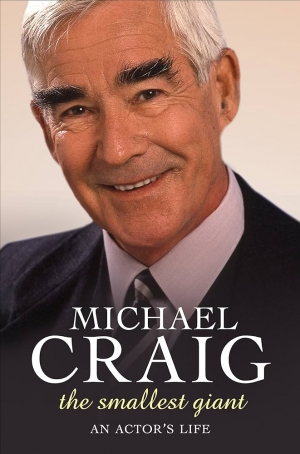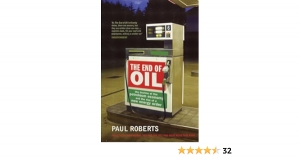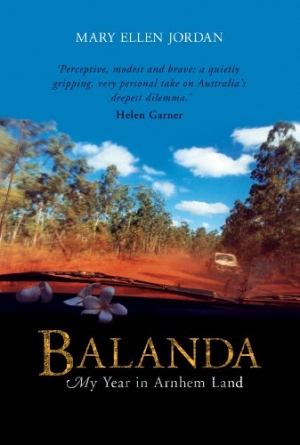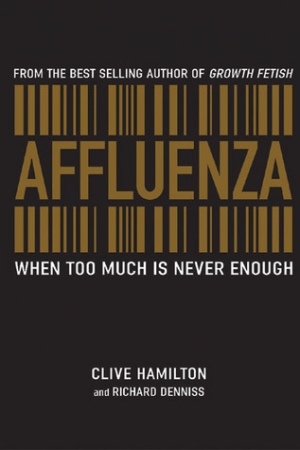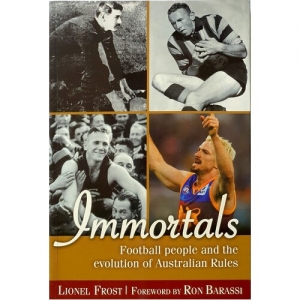Allen & Unwin
Karen Brooks reviews ‘Snow Wings’ by Jutta Goetze, ‘The Rat and The Raven’ by Kerry Greenwood, and ‘Dogboy’ by Victor Kelleher
‘Time will tell’ is an old adage that, in a peculiar way, links and separates these three different tales. While Victor Kelleher’s moving and poetic Dogboy lures readers into the harsh ‘Dry’ of a time that never was and never will be, Jutta Goetze’s story plunges into snow-bound Bavaria, in a time both familiar and strange to contemporary audiences. Kerry Greenwood, on the other hand, situates her futuristic sci-fi in a place and era at once known and yet irrevocably altered; creating an anachronistic story that is both challenging and exciting. All of these writers rely on temporality to both weave and anchor their stories with differing results.
... (read more)Michelle Griffin reviews 'Everyman’s Rules for Scientific Living' by Carrie Tiffany and 'Road Story' by Julienne van Loon
The Vogel Prize shares a reputation with the rest of the company’s products: nutritious, worthy, a little dull. But the prize’s earnest image is unfair. Any glance at the roll-call of winners over the last twenty-five years would show that the makers of soggy bread and soya cereals have done more than anyone to introduce fresh literary DNA into Australia’s tiny gene pool of published novelists. But reviewers, mostly, and the public, generally, don’t get excited when the new Vogel is published. This year they should. Julienne van Loon’s desperate joyride, Road Story, is the best Vogel winner to come along since 1990, when Gillian Mears’s The Mint Lawn, equally confident but very different, won first place.
... (read more)Guy Rundle reviews 'Beyond Right and Left: New politics and the culture wars' by David McKnight
In the last twenty years, the belief in a transformative left – socialist, communist, whatever – has collapsed more comprehensively than at any time since its beginnings in 1789. The Western working class is overwhelmingly oriented towards individual life, acquisition and consumption; the working class of the developing world has not developed major radical parties in the face of substantial repression of trade union organisation; faith in central planning, market socialism, interconnected cooperatives and the like drained away in the late 1970s, and no alternative plan for running the economy is on the table.
... (read more)Tony Smith reviews ‘The Visitor’ by Jane R. Goodall, ‘Rubdown’ by Leigh Redhead and ‘The Broken Shore’ by Peter Temple
Some generals in Australia’s ‘culture wars’ have appointed themselves defenders of a mythical identity against the incursions of multiculturalists and ‘black armbanders’. Literary skirmishes over national identity have been more mundane, concerning mainly eligibility for awards. Certainly, three recent crime novels suggest that Australian writing benefits from adoption of a broad definition. That these three novels vary widely in plot, setting, characterisation and style is understandable given the authors’ disparate backgrounds.
... (read more)Jake Wilson reviews ‘A Hand in the Bush’ by Jane Clifton, ‘Death By Water’ by Kerry Greenwood and ‘The Devil’s Companion’ by John Misto
There is a trick to the trite title of Death by Water, the fifteenth volume in Kerry Greenwood’s series about the hedonistic 1920s private detective Phryne Fisher. Contrary to expectations, no murder occurs for more than two hundred pages. In the meantime, the nominal plot involves the hunt for a jewel thief aboard a cruise ship bound for New Zealand, but far more attention is devoted to meals, cocktails, cigarettes, clothes, dance music, maritime scenery, anthropological chit-chat and recreational sex. Literary quotes of approximate relevance head each chapter, while ratiocination occurs as an accompaniment to life’s more sensual pleasures: ‘Phryne ate a thoughtful croissant.’
... (read more)John Golder reviews ‘The Smallest Giant: An actor’s life’ by Michael Craig
The publisher’s puff to actor Michael Craig’s autobiography, a ‘fascinating, wittily wicked memoir of his life in film, theatre and television’, is unfortunate: not only is its conventional hyperbole on this occasion a cruel overstatement, but it misleadingly suggests a meaningful structuring of the events of Craig’s long career – in three media on two continents – that is nowhere apparent. Craig himself calls it more modestly a ‘rambling discourse’.
... (read more)Peter McLennan reviews ‘The End of Oil: The decline of the petroleum economy and the rise of a new energy order’ by Paul Roberts and ‘Crude: The story of oil’ by Sonia Shah
The experts may prognosticate, but reality makes fools of them, too. Paul Roberts, in The End of Oil: The Decline of the Petroleum Economy and the Rise of a New Energy Order, reviews several scenarios for the future of oil that were advanced in late 2002 by the US National Intelligence Council. The two most bleak ones had the price of oil reaching US$50 a barrel, the first sometime between 2010 and 2015, the second somewhat earlier, following convulsions in the Middle East. As we know, US$50 was reached only a few months after The End of Oil was published in the US; at the time of writing, the price is around US$60 a barrel. Reading these two books confirms the certainty, speed and completeness of change. The unknowable for oil is: when?
... (read more)Travis Cutler reviews ‘Balanda: My year in Arnhem land’ by Mary Ellen Jordan
The first time Mary Ellen Jordan’s name appeared in ABR (June 2001), it was followed by a brief, heated exchange. Bruce Pascoe responded to her ‘Letter from Maningrida’ mixing accusations of betrayal with a series of familiar analogies, in a stern warning that this kind of fearless journalism was not wanted. Melissa Mackey moved to Jordan’s defence. She had read courage, not fearless journalism, and, in open frustration, ended her reply by simply asking: ‘then what can we say?’ I read Balanda: My Year in Arnhem Land as part answer, part re-examination of that question.
... (read more)Amanda McLeod reviews ‘Affluenza: When too much is never enough’ by Clive Hamilton and Richard Denniss
Since the early 1990s Australians have been infected with ‘affluenza’ – a virus of over-consumption that Clive Hamilton and Richard Denniss characterise as ‘the bloated, sluggish and unfulfilled feeling that results from efforts to keep up with the Joneses’, a growth fetish and an ‘epidemic of stress, overwork, waste and indebtedness caused by dogged pursuit of the Australian dream’.
... (read more)Brian Matthews reviews ‘Immortals: Football people and the evolution of Australian rules’ by Lionel Frost and ‘Keeping the Faith: Collingwood … the pleasure, the pain, the whole damned thing’ by Steve Strevens
Albert Thurgood, whose first season playing for Essendon in 1892 was described by the Leader as ‘in every way phenomenal’, was simply the ‘Brighton junior Thurgood’ when Essendon selected him for the first game of that season, though his all-round athletic prowess at Brighton Grammar School had already marked him as a possible ‘prize’ recruit. Though St Kilda was his nearest club, and though, as Lionel Frost recounts, St Kilda actually selected him for a game in 1891 ‘in the hope that he would join them’, he opted for Essendon, a decision which moved several other clubs to wonder if Essendon had organised a financial inducement. Plus ça change.
... (read more)
